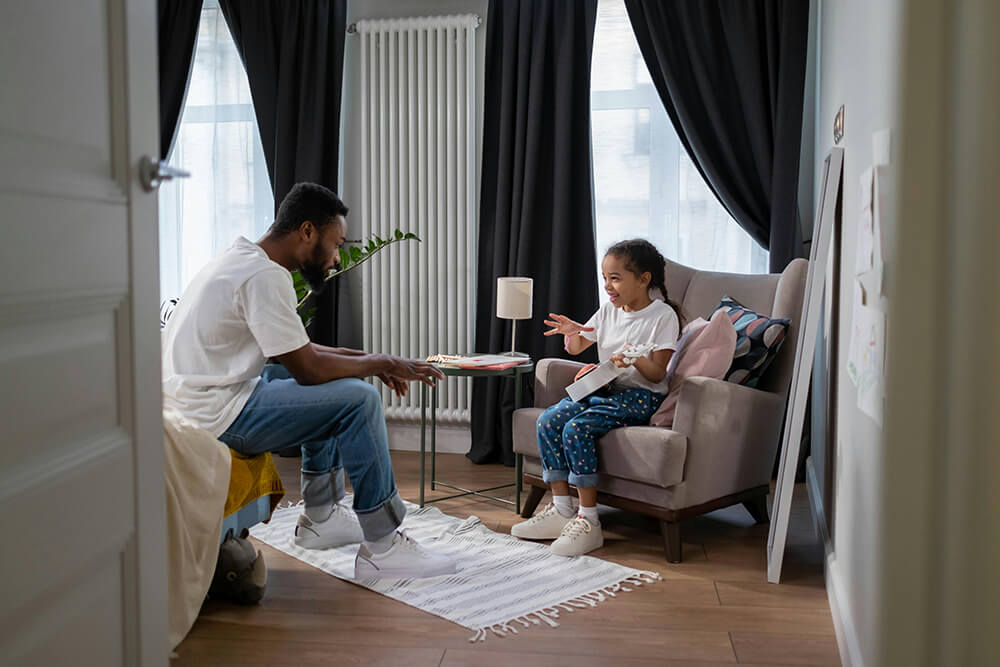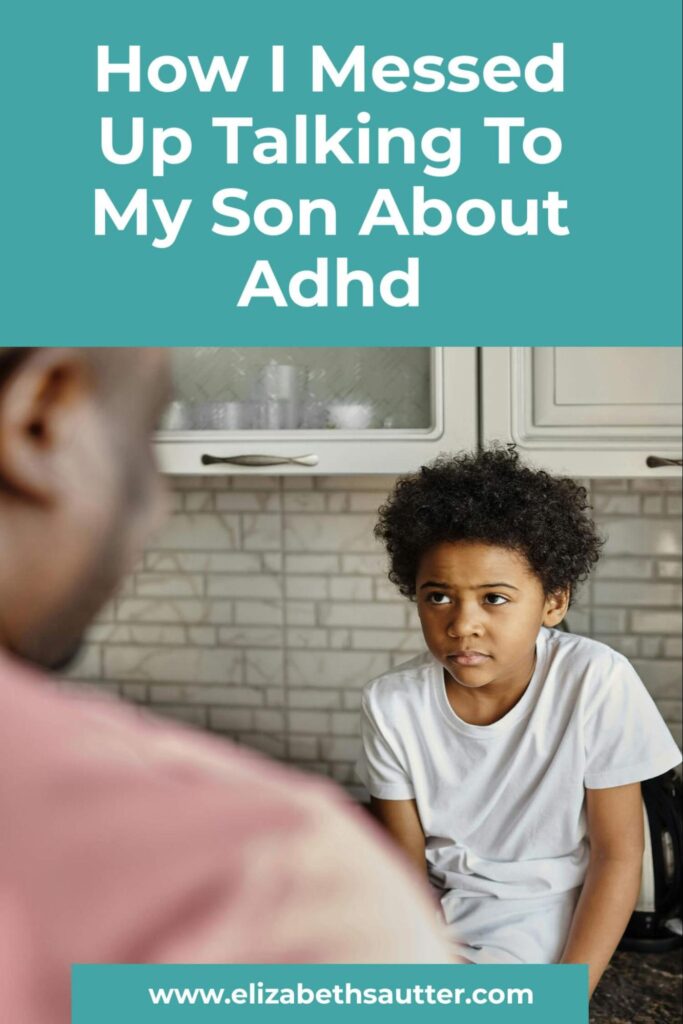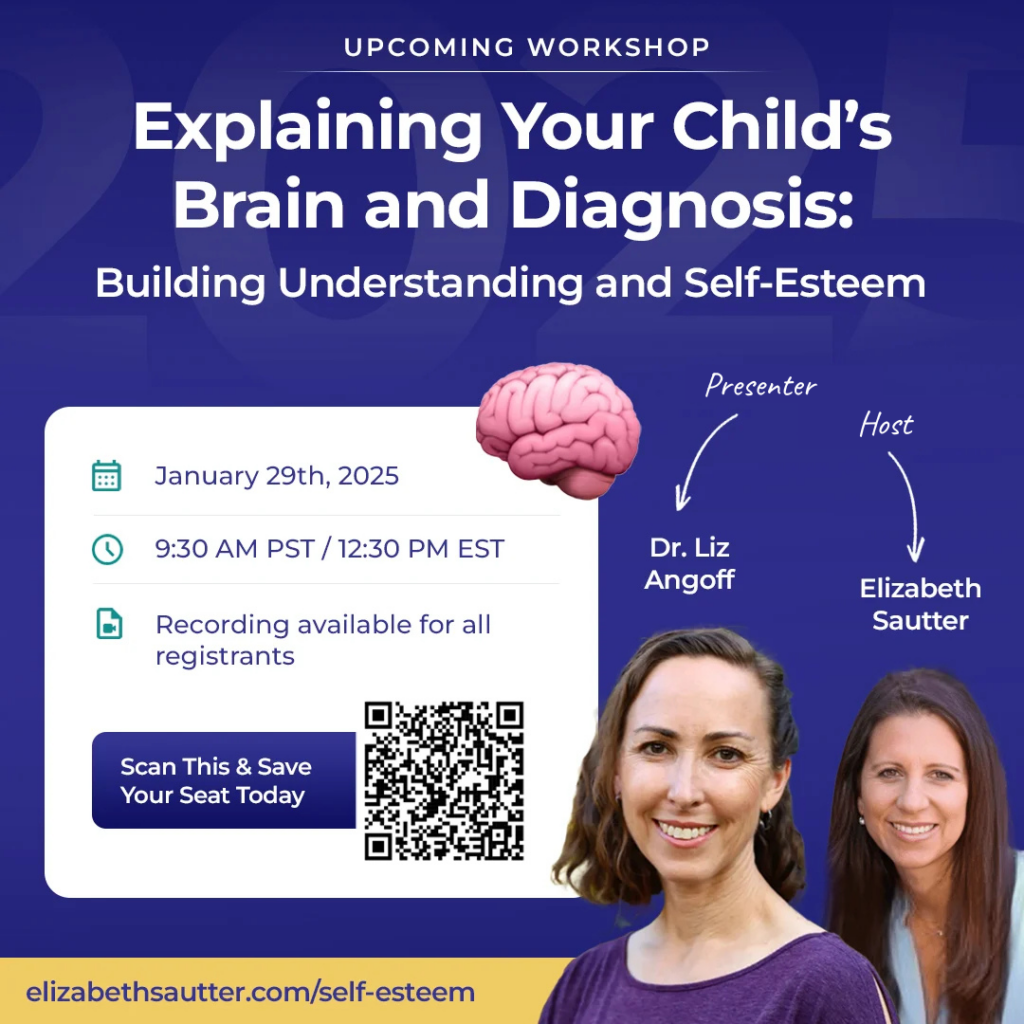Parenting is full of moments we wish we could redo. One of mine happened shortly after my son’s ADHD assessment when he asked me, “Do I have ADHD?”
It wasn’t in a private moment; he asked this in front of his friend.
I froze for a split second, then blurted out, “What do you think?” It wasn’t a bad question in itself, but the timing and context were all wrong. My son looked confused, his friend fidgeted awkwardly, and I realized immediately that I’d mishandled an important conversation.
That moment stayed with me. I hadn’t been intentional about how or when I wanted to talk to him about his diagnosis. Instead of giving him clarity and reassurance, I left him feeling uncertain and probably a little embarrassed.
Why These Conversations About ADHD and Neurodivergence Are Crucial

Kids are constantly forming opinions about themselves based on what they hear and observe. When they lack clear, positive language to understand something like ADHD, they may fill in the gaps with negative assumptions.
Talking to kids about ADHD—or any neurodivergent diagnosis—gives us a chance to shape how they see themselves. We can normalize differences, highlight strengths, and provide tools to navigate challenges.
Unfortunately, when my son asked me that question, I wasn’t prepared. I missed an opportunity to help him understand and celebrate his unique brain.
What I Learned From Dr. Liz Angoff
Thankfully, I discovered the incredible work of Dr. Liz Angoff, a school psychologist and author of The Brain Building Book. Her life’s work is helping parents have strength-based, empowering conversations about neurodivergence.
Dr. Angoff’s resources have been a game-changer for me. She emphasizes that these conversations need the right timing, language, and focus on strengths. Here’s what I learned from her:
1. Create a Safe, Private Space
Dr. Angoff stresses the importance of privacy when discussing diagnoses. Kids are more likely to engage and feel supported when these talks happen in a calm, safe setting without distractions—or, as I learned, the presence of friends.
Before discussing challenges, start with what makes your child amazing. For example:
- “Your brain is creative and full of great ideas.”
- “You’re great at thinking outside the box.”
This helps kids feel proud of who they are and sets a positive tone for the conversation.
To explain ADHD, Dr. Angoff recommends using relatable metaphors. One of my favorites is comparing the brain to a toolbox:
- “Everyone has tools in their brain to help them focus, plan, and get things done. ADHD just means some of those tools work differently, so we might need extra tools to help out.”
This approach makes the information accessible and less overwhelming.
4. Normalize Neurodivergence
It’s important to frame ADHD and other diagnoses as part of the natural diversity of brains. Explaining that everyone’s brain works differently helps reduce stigma and builds acceptance.
What I’d Do Differently
If I could go back, I’d wait for a quiet, private moment to talk to my son about his ADHD diagnosis. After his assessment, I would have sat down with him and said:
“Yes, you do. Let me explain what that means and why it’s part of what makes your brain amazing. ADHD means your brain works really fast and has so many creative ideas, but it also means some things, like focusing, can feel tricky sometimes. We’re here to support you with tools to help when things get hard.”
I’d make sure he felt seen, reassured, and proud of his brain instead of leaving him with confusion and uncertainty.
Tools to Help You Navigate These Conversations
If you’ve ever wondered how to talk to your child about ADHD—or worried about saying the wrong thing—you’re not alone. These conversations can feel daunting, but there are resources to help.
I’m excited to host a live workshop with Dr. Liz Angoff:
Explaining Your Child’s Brain and Diagnosis
This workshop provides practical tools, scripts, and strategies to help you approach these conversations with confidence. Dr. Angoff’s expertise will help you feel prepared to support your child’s understanding and self-esteem.
👉 Register for the workshop here
We’re also offering a free resource to support you further:
Set Your Intentions for 2025 Worksheet
This free download includes:
- A guided process to set meaningful goals for the year.
- Neurodivergence-affirming descriptions of common diagnoses.
- Tips for having empowering conversations about your child’s unique brain.
Final Thoughts
Parenting isn’t about being perfect—it’s about learning, growing, and doing better. While I can’t redo that moment with my son, I’ve learned how to approach these conversations with more care and intention.
Dr. Liz Angoff’s work has been a powerful resource for me as I strive to help my son understand and celebrate his neurodivergent brain. If you’ve ever struggled with how to talk to your child about ADHD or other diagnoses, I encourage you to explore the workshop and freebie to feel more confident and prepared for these important conversations.
Let’s empower our kids to see their brains as a source of strength and possibility.


